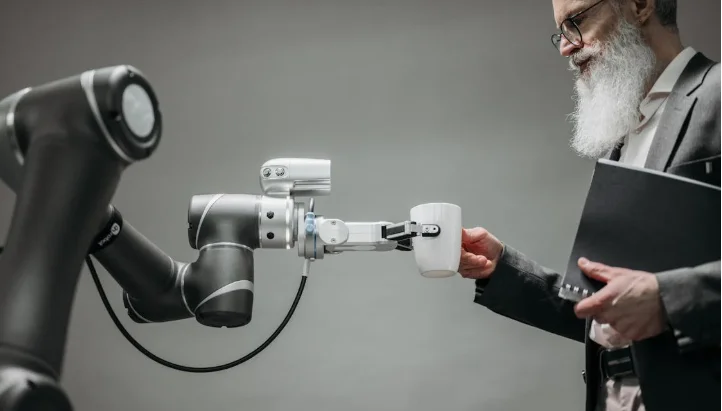
The healthcare industry is growing with new features, and they are doing so well with human healthcare. Talking about the most remarkable analyzing handle and analyzing an extensive database. AI can identify patterns of any disease that can be detected earlier. AI provides doctors with tools to guide their decision-making. This can help clinicians make faster and more accurate diagnoses, develop personalized treatment plans, and monitor disease progression more effectively, thereby improving patient outcomes.
Certain diseases, such as heart disease and cancer, directly change and alter tissue behavior as it is. Detecting the initial subtle changes in tissues caused by these diseases can be challenging. It is often only apparent when they have progressed to more advanced stages and can be visualized with X-rays, CT scans, MRIs, and mammograms. So, in this article, we will be talking about the role of AI in revolutionizing the healthcare industry.
The Lagging Adoption of AI in Healthcare
Implementing AI within healthcare is slower than within other industries, partly because of the complementary innovations and regulatory changes that need to happen first. Current privacy regulations make it difficult to collect and pool healthcare data, which poses challenges in using real health data to train AI models quickly as in other industries. Regulatory innovations will be needed for AI to be realized without compromising patient rights or quality of care, and questions such as who owns and can use health care data, how AI medical devices and software are approved, and where the liability lies between medical providers and AI developers, will need to be addressed. Experts argue that using AI effectively in healthcare will inevitably require retraining the workforce, retooling health services, and transforming workflows.
Diagnostic Technology Advancements Driven by the COVID-19 Pandemic

From every aspect, AI has the possibility to deliver extraordinary improvements in healthcare, particularly diagnostics. As noted in a recent publication on “The Latent Impact of Artificial Intelligence on Healthcare Spending” by The National Bureau of Economic Research, “Medical knowledge is growing so fast that only six percent of what the average new physician is taught at medical school today will be pertinent in ten years. Technology such as AI could provide appreciated clinical data to the clinician at the time of diagnosis.”
Find this article interesting, and I would like to read more. Learn about “Diagnostic Technology Advancements Driven by the COVID-19 Pandemic”.
Conclusion
Despite the many benefits of AI in healthcare, there are also worries about its potential negative impact. There is a risk that the technology may preserve existing biases and disparities in healthcare; besides, there are also concerns about the potential loss of jobs as tasks are automated.
Overall, AI is revolutionizing the healthcare sector in a variety of ways, from improving diagnostic accuracy to reducing costs and streamlining administrative tasks. While there are concerns about its potential negative impact, the technology has the potential to improve the quality and efficiency of healthcare for patients significantly.
FAQS
What is the role of AI in revolutionizing healthcare?|AI algorithms analyze patient data—such as medical history, lab results, and current vitals—to predict the likelihood of readmission after discharge. Hospitals can use this information to provide post-discharge care plans tailored to individual patient risks, improving outcomes and reducing costs.
How is AI changing the healthcare industry?|AI can enable healthcare systems to achieve their ‘quadruple aim’ by democratizing and standardizing a future of connected and AI-augmented care, precision diagnostics, precision therapeutics, and, ultimately, precision medicine.
What is the role of AI in the future of healthcare?|AI-driven process automation and machine learning in finance, logistics, and customer experience can streamline operations, reduce costs, and improve service quality. By handling repetitive tasks, AI allows human workers to focus on strategic and creative endeavors, fostering innovation and productivity.





